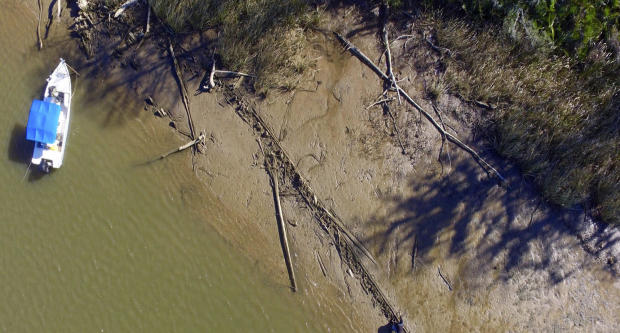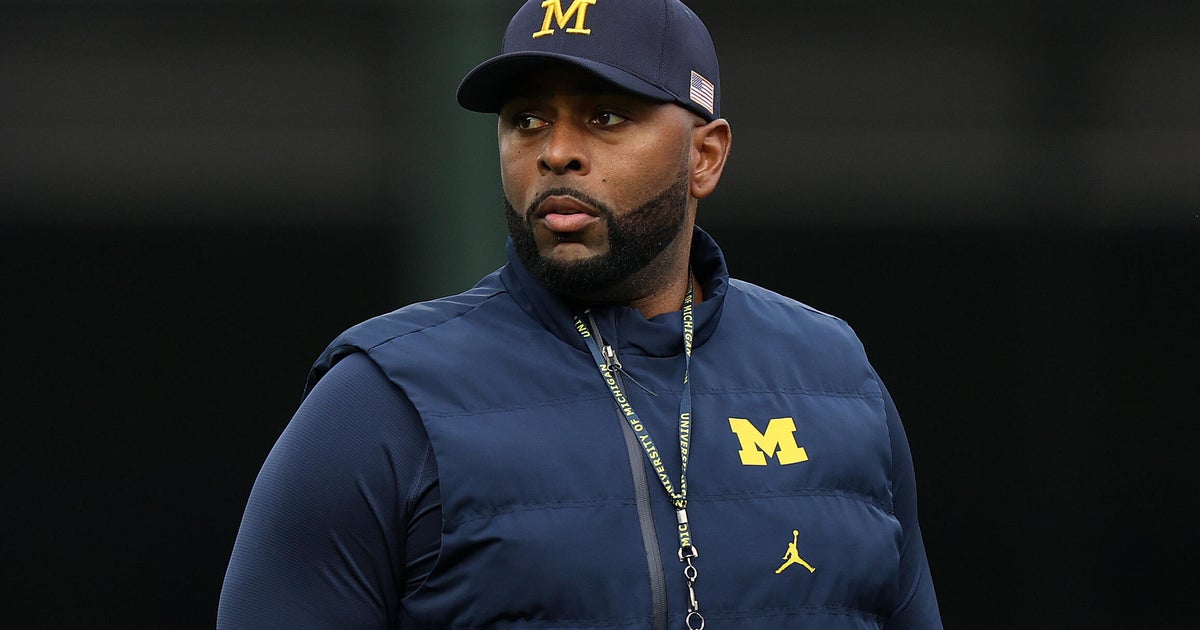Newly discovered wreck may be last ship to bring slaves to U.S.
EDITOR'S NOTE: Results of an investigation have found that the wreckage is not the Clotilda. Click here for the latest update.
MOBILE, Ala. -- Researchers say remnants of a wooden ship found embedded in mud in a river delta in southwestern Alabama may be the Clotilda, the last vessel to bring slaves to the United States nearly 160 years ago. The wreck, which is normally covered by water in the lower Mobile-Tensaw Delta, was recently exposed by unusually low tides and located by a reporter for Al.com who covers the environment and conservation on the coast, Ben Raines.
Experts told Al.com the ship remnants could be the Clotilda, which was burned after delivering captives from what is now the west African nation of Benin to Mobile in 1860, based upon where Raines found it and the way it was built.
"You can definitely say maybe, and maybe even a little bit stronger, because the location is right, the construction seems to be right, from the proper time period, it appears to be burnt. So I'd say very compelling, for sure," said Greg Cook, a University of West Florida archaeologist who examined the wreck.
The Clotilda arrived in Mobile with as many as 160 slaves, CBS affiliate WKRG-TV reports. But federal authorities caught wind of the illegal venture. The captain off-loaded his cargo onto a riverboat and set the Clotilda ablaze and adrift.
The Africans went into slavery in various locations, but after the Civil War they were freed. A group asked one Mobile landowner, Timothy Meaher, for some land. That group settled there in what they called Africatown, WKRG-TV reports.
"What I hope is finding the ship, if this is it, gives people a reason, one, to investigate a little more, to pay attention to Africatown," Raines told the station.
John Bratten, who works with Cook exploring shipwrecks, said there was "nothing here to say this isn't the Clotilda, and several things that say it might be."
One key element is the location of the wreck: It's essentially where the Clotilda's captain, William Foster, wrote that he burned and sank the ship in 1860, the year before the start of the Civil War. The wreck shows evidence of damage from fire, and the vessel was constructed using techniques of the mid-1800s, when the Clotilda was built.
President Thomas Jefferson signed a law in 1807 forbidding the importation of slaves, but slavery remained the linchpin of the Southern farm economy for decades more. Mobile was a prime port on the Gulf Coast with river access to the cotton-growing plantations upstream.
The Clotilda, a two-masted schooner, set out for Africa on a bet by an Alabama steamboat captain and plantation owner who wanted to show he could sneak slaves into the country despite federal troops stationed at forts that guarded the mouth of Mobile Bay.
Most of the wreck lies in mud, and Cook said further study, including excavation, is needed to verify the ship is the Clotilda. Cook said the first step is to gather input from the Alabama Historical Commission, other state officials and the U.S. Army Corps of Engineers. Ultimately, the goal would be to identify the wreck and perhaps put any artifacts on display.
"If it turns out to be the last slaver, it is going to be a very powerful site for many reasons. The structure of the vessel itself is not as important as its history, and the impact it is going to have on many, many people," he said.




